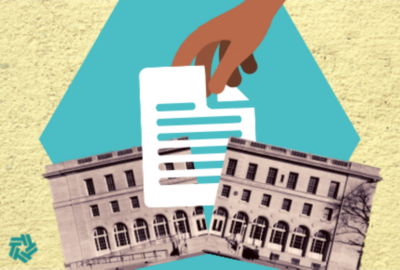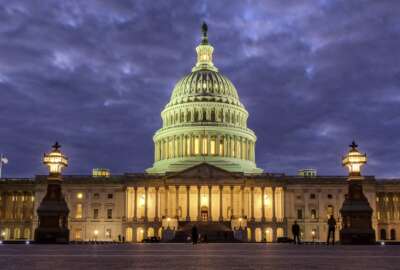OGE Director Shaub wants a stronger, more transparent ethics community
The National Government Ethics Summit, sponsored by the Office of Government Ethics, highlighted basic and advanced training for federal ethics officials, as well...
The Office of Government Ethics is stepping out from behind the legal and policy curtain to help build a broader community, and it wants agency ethics officials and others to do the same.
Walter Shaub, the director of the Office of Government Ethics, said one of his major goals is to strengthen the ethics community across the government. To do that, Shaub said, OGE is increasing transparency and accountability, and maybe most importantly, focusing more on standardized training.
“One of the things about the federal ethics program is that it’s decentralized in a couple of ways. First of all, OGE doesn’t have jurisdiction over the judicial or legislative branch. They each have their own ethics offices. We coordinate with them a lot, and we brought them in to meet with us so we could all try to benefit from each other’s’ experiences,” Shaub said Tuesday during an exclusive interview with Federal News Radio at the last day of the National Government Ethics Summit in Washington. “But even within the executive branch, it’s decentralized. OGE has about 80 employee positions, but the executive branch ethics program has 5,500 ethics officials stationed at every one of the 130 federal agencies. Particularly for the ones at the small agencies, where they may be the only or one of only a couple of ethics officials and they may wear many hats, it’s hard for them to specialize in only ethics, because they have to do so many things and have to be generalists.”
These are among the reasons the Office of Government Ethics held more than 108 individual training sessions that lasted more than 125 hours during September’s summit.
Most of the sessions were in person, but for the first time, OGE webcasted some of the events. Shaub said about 10 sessions were virtual, and all will live on the OGE’s website permanently so ethics officials can find them.
“We are really trying to give agency ethics officials the takeaway that the Office of Government Ethics is here to support them, that they are not alone and that, in fact, we can help coordinate the support of a larger ethics community for them,” he said about the reason to hold the summit. “In that respect, this is also really a professional development for agency ethics officials. The theme this year is broad. It’s strengthening the ethics community.”
Ethics rules are not intuitive
OGE’s summit covers everything from basic to advanced ethics training based on the rules that the agency oversees, as well as issues around whistleblower retaliation, the Hatch Act and coordinating with inspectors general and human resources officials.
“This work is hard. Ethics rules are not intuitive. I wish I could say they are based only on common sense. The work that federal employees do is very complex and very broad ranging, so the rules have to be complex,” Shaub said. “As a result, you really need professional ethics officials who have not only training themselves, but access to others in the ethics community where they can bounce ideas off of.”
One common complaint from good government groups, such as Public Citizen, is the inconsistency in how agencies apply the ethics rules and laws. Craig Holman, a government affairs lobbyist at Public Citizen, said OGE should have more authority and oversight around ethics rules and laws. He said the current setup isn’t working, because agency ethics officials answer to department and deputy secretaries and do not have enough independence.
Shaub said while he would like to have more people and resources, it’s a matter for Congress to take up.
In the meantime, Shaub said OGE is doing what it can to ensure consistency and understanding of the rules.
“We can make sure that they’re doing the same thing at the Department of Defense that they’re doing at the Department of [Health and] Human Services and at the Federal Communications Commission, and elsewhere,” he said. “We’re really targeting the general public. We want to be as transparent as possible. We’ve increased our work with social media. I’ve posted a blog on our website that’s written in plain English to the average reader. And we are really trying to raise the visibility of the ethics program so that the public knows there are systems in place to protect the integrity of government.”
Increased training leads to more demand
Shaub, who has been director for just less than two years, but has been in government for almost 20 years, said when he became director he wanted to increase OGE’s visibility inside and interaction with the ethics community — both internal to government and external with good government groups and lawmakers.
Shaub said OGE is listening to their concerns, one of which is ethics officials need more training.
He said over the last year, OGE increased the amount of training it provided government officials by 238 percent.
“The feedback has been positive about the quality of training, and people want more, so we are leveraging technology to reach out to more people,” he said. “We hope to do more live streaming of events in the future.”
The training issue is important because a fiscal 2013 survey of agency ethics officials found most are spending their time providing advice and counseling to federal executives on ethics issues, specifically around gifts and post- employment rules.
Nicole Stein, an OGE program analyst who runs the survey, said in the 2012 survey, most ethics officials said they spent most of their time on financial disclosures.
Stein said the survey also found that half of agency ethics officials are new to their leadership role, and 62 percent are not yet retirement eligible.
RELATED STORIES:
Office of Government Ethics enhances network to spur productivity
Is one ethics officer enough for 18,674 VA employees?
Ethics nominee asks Congress to change insider trading law
Copyright © 2024 Federal News Network. All rights reserved. This website is not intended for users located within the European Economic Area.
Jason Miller is executive editor of Federal News Network and directs news coverage on the people, policy and programs of the federal government.
Follow @jmillerWFED






